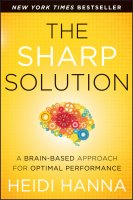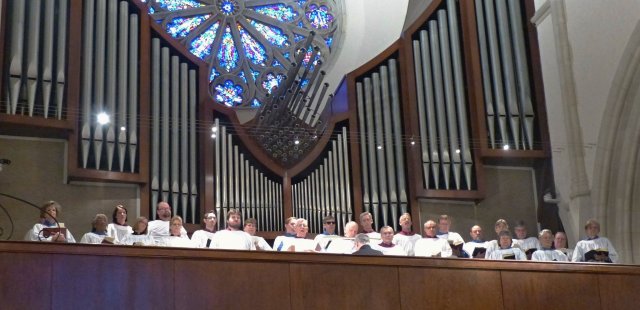There were Sandra Boynton books around when our children were young, but they were new, and we mostly missed them. When our nephews later introduced them to us, I wasn't all that impressed. Very few books directed at children impress me. But in the last month I have become a fan.

Specifically, of Blue Hat, Green Hat and But Not the Hippopotamus. Daniel (22 months) wants them read over and over and over and over and over ... but I've yet to grow weary of them. It helps that they're short, but it's mostly his enthusiasm that keeps me going. He can very nearly read them to himself, thanks to the repetition within the books as well as the repeated readings. He gleefully fills in "Oops!" and "Hippopotamus" in the appropriate places, and tonight, after I refused to read any more, I heard him "reading" several pages of the latter book to himself. "Should stay? Should go?" and with the greatest expression. Such fun.
So, a very belated thank you, Ms. Boynton!
Joseph wanted to go to the grocery store, and made his own shopping list. (Click to enlarge.)
He did not have enough money to make the purchases, especially in the quantities he wanted, but I told him I'd gladly pay for one package of butter, so we went off eagerly to the store. Grandmotherly hearts—and appealing grandchild eyes—being what they are, the plan escalated a bit.
While Janet and the others did their own shopping, Joseph and I started filling his little cart. He found at least one of everything on his list (milk, pizza, oranges, bread, butter, orange juice, apple juice, peanut butter, and water), and I added several other items of interest to me (e.g. Swiss chocolate half off).
At checkout, he put his items on the belt, and got out his purse. He handed the lady his widow's mite—all he had. I slipped her a 50-franc bill; she smiled, and handed the change to Joseph. His eyes opened wide, as the change was a bit over six francs, about twice the sum he had started with, and monumental compared with his weekly allowance.
One hundred percent return on investment, and a cart full of food, too. Even I might learn to like shopping under those circumstances.
Grandparents sometimes have luxuries unavailable to parents, the greatest of which may be time. Not that I've ever felt free from the pressure of too much I want to do and not enough time in which to do it, but both time and the lack thereof are relative.
Vivienne wanted to go for a walk with Grandma, and she particularly likes it when I let her take the lead. We started out along familiar paths, stopping for a while at a favorite playground. But there was a somewhat aggressive boy there, so exploration soon became more attractive again.
We hiked past a mall and the local equivalent of Wal-Mart. (I hope I don't offend anyone with that comparison, but it's a large store that carries a great variety of items at comparatively reasonable prices.) As we passed, she expressed her regret that the stores were all closed. Here most businesses are closed on Sundays, a practice widespread when I was young but now limited at home primarily to Chick-fil-A restaurants. While I admit to doing my share of business on Sundays, part of me misses those times and the natural respite from day-to-day consumerism and busy-ness.
End of digression. Vivienne was content enough to window-shop in the garden center, which was visible from the sidewalk. Moving on, we crossed the street to an intriguing path that spiraled down towards a tunnel. Where would it lead? It was dark and lonely, seemingly abandoned: the underground part of a parking garage, empty because the stores were closed. A little scary, too, so we happily returned to the sun-lit lands, up a set of stairs and on our way.
On our way where? We found ourselves in a neighborhood of apartment buildings, complete with tempting playgrounds. Tempting, but in the end resistible—the intrepid walker pressed on. At last we came to the only intersection where Vivienne asked me to decide if we should go left or right. Less adventuresome, knowing that going out requires an eventual return, and cognizant of approaching suppertime, I chose to "close the loop."

a rough sketch of our approximately 1.75-mile journey
Vivienne had other ideas, however, immediately executing a hairpin turn and heading off towards the ... train station! Through the tunnel, under the tracks, and up to the platform. We looked around for a while, but no trains came. Go back as we had come? Certainly not! We had to find another way across the tracks. Which we did, going still further on before we could turn around.
After that the return was fairly straightforward, with just one foray into a business center that I would have avoided had I been the leader. That was the point at which I first blessed having no need to hurry: at worst we would have to call home to say we'd be late for supper. For it was then that Vivienne decided she had had enough walking and wanted to be carried. I wasn't surprised—we'd been walking quite a while, and she is not that much past her third birthday. Nevertheless, I reminded her that we'd discussed a couple of times the importance of not going so far that we'd run out of energy for the return trip. So I waited, and Vivienne sat on the ground until she had recovered enough energy to walk, which she did when she was ready, without fuss or complaint.
We were almost within eyeshot of home when she sat down again, and took off both her socks and shoes. She did not ask to be carried, but apparently her feet needed some air. I completely understand. After about 15 minutes—and a few smiles and nods from passersby—she calmly put her socks and shoes back on, stood up, and we continued on our way.
Not, alas, as quickly as I—tired myself and still mindful of supper time—would have wished. It took a long time to cross the bridge. It's only over a road, but that was fascinating enough to Vivienne, and she careened as many times as possible between the side of the walkway with the precipitous drop and the side right next to the bus lane. The guard rails are sturdy and sufficient, but I was notably happier when we finally reached the end of the bridge. The rest of the trip was uneventful, though by no means speedy, as we stopped to smell at least 50 roses in the home stretch.
We had had a great adventure together, and still made it home for supper.
Permalink | Read 2344 times | Comments (1)
Category Children & Family Issues: [first] [previous] [next] [newest] Everyday Life: [first] [previous] [next] [newest]
My airplane dinner was very good, as airplane dinners go, so I don't mean to complain. But I couldn't help noticing that the first ingredient on a wedge of cheese labeled "Swiss cheese" was cheddar. Swiss cheese was there, too, several items later—after water. What's particularly odd is that of all the amazing cheeses readily available here in Switzerland, chedder is not one of them.
And then there was this bottle of Alpine Spring water, "bottled at the source"...
... in Tennessee.
As I sit here, typing away at the edge of the Alps themselves, I can assure you beyond a shadow of a doubt that they are nowhere near Tennessee.
If our laws concerning product labelling allow this, why should I trust any label at all?
It's summer, and I'm living at a latitude approximately that of the northern tip of Maine. Which is why it's easy to lose track of time completely: how can it be quarter to ten at night and still light enough outside to read easily? For the same reason, I guess, that the birds greet the day with song when the little hand is still pointing to the four. Strange experiences for a Florida girl.
Permalink | Read 2378 times | Comments (4)
Category Everyday Life: [first] [previous] [next] [newest]
So, it's "quiet time" here with the Swiss contingent. Vivienne and Daniel have worn themselves out and are now asleep. Joseph spent the first half hour reading out loud from the Bible: New International Version, starting in Ruth, ending in Revelation, and skipping all around in between. Now he has a spray bottle and a cloth and is cleaning up streaks on the glass doors to the balcony. Janet has followed the lead of the younger ones, but I'm enjoying the sun, the cool breeze, and a moment of quiet (maugre the barking dog, the nearby airfield, and the heavy contruction noise).
Side notes:
- The time stamp should now be right for my posts. I hadn't bothered to change the time zone in LifeType, but finally decided it seemed too silly to write about the afternoon with an early morning timestamp.
- I can't decide whether to be pleased or annoyed that Google thinks it's smarter than I am. It looks at my IP address and decides to deal with me in German....
Over the years I have been astonished at the technical prowess of our grandchildren. Perhaps I shouldn't be surprised: advancing technology has made it clear that it's physical coordination more than mental ability that has in the past held children back.
In 2006: Jonathan, who just turned three, met me on the stairs with a blue cable in his hand. As I passed, I remarked, "That looks like a Cat 5 cable." "No it's not," he responded, "It's a USB cord." (He was right.)
And in 2010: One day Heather discovered two-year-old Faith sitting at the computer, typing away in their Open Office word processing program. She assumed Jon had set it up for her, but that was not the case. No one knows how Faith did it. This is no consumer-friendly iPhone, nor even Windows, but a Linux-based system only a geek could love.
There were many more examples I did not record, but I thought of these the other day, when it happened again.
Joseph, just shy of his fifth birthday, had been using his mother's GMail program to compose and send me a letter. He then told me he wanted to make a copy. I wasn't sure what he meant, so I showed him how to click on the Sent folder to see the e-mail again. That wasn't what he wanted, but his sister required some immediate assistance, so I said I'd help him when I returned.
Just a couple of minutes later I came back, and he was in the process of removing a page from the printer. He then shut the printer down and put the tray back into its folded position. When he handed the printout to me, I asked him how he knew what to do. "I clicked on the print button," he replied.
I don't use GMail to compose or read my mail, but I logged on to see see if the process was really that simple. It's not. First of all, the print icon is small (though I'll admit his eyes are quite a bit younger than mine, so maybe that doesn't matter much), and once you click on it you have at least one more step before the print actually happens.
Technology is not strange, nor frightening, to those who grow up with it as ubiquitous as air.
Permalink | Read 2488 times | Comments (0)
Category Education: [first] [previous] [next] [newest] Computing: [first] [previous] [next] [newest] Children & Family Issues: [first] [previous] [next] [newest] Everyday Life: [first] [previous] [next] [newest]
One of our grocery stores is inside a small mall with a play place. The rest rooms are not far away, but on a different floor, so a visit involves an elevator ride, and Vivienne was reluctant to go alone. No problem; Janet went with her and I stayed with the others. What makes this something worth reporting is what happened a little later.
Daniel was still happy in the play place, but Joseph and Vivienne decided they wanted to explore. They had a particular plan in mind, worked out the details with Mom, and off they went: up the elevator to the fifth floor, check out a particular store ("from the outside only, not going in"), come back down again and check in with Mom before going back into the play place. They did exactly that, returning in just a few minutes with big grins.
Only a few minutes later Vivienne left the play place again, and asked permission to take another exploratory trip. This was a slightly larger stretch for Mom and Grandma, since this time she would be on her own, without her older brother. But she did just great, and immediately announced that she had to use the bathroom again, and would do it all by herself.
She did just that. The look of triumph on her face was priceless. Well worth the maternal and grandmaternal nervousness we experienced upon watching the elevator doors close on our little adventurer.
I say this is growth and learning at its best.
- Her initial fears and dependence were accommodated without shaming.
- She stretched her comfort limits as part of her older brother's project.
- She repeated the same experience without her brother, making all the decisions (and pushing all the buttons) on her own.
- Finally, she repeated the bathroom trip completely independently.
This triumph was accomplished within a span of perhaps half an hour, with no pressure, no tears, at her own pace, when she was ready.
Joy all around.
Mary Perkins was born in England in 1615, and came to Massachusetts with her family in 1631, on the same ship as Roger Williams (my 10th great-grandfather and the founder of both Providence, Rhode Island, and the Baptist Church in America). She married Thomas Bradbury, who had come to the New World from London in 1635.
What makes Mary among the more notable of my ancestors is her conviction of witchcraft in Salisbury, Massachusetts, at the age of about 77. She was one of the very few convicted women who escaped being hanged; just how is not known.
GenealogyMagazine.com has published an article on Mary Bradbury. I'm not completely confident of its accuracy—it says, for example, that she was convicted at the age of 72, but that is not reasonable given that she could not have been born after her baptism in 1615. Still, it's an interesting article and pulls together some stories that I had not heard before.
Here is the article: The Witchcraft Trial of Mary Perkins Bradbury.
 The SHARP Solution: A Brain-Based Approach for Optimal Performance by Heidi Hanna (Wiley, 2013)
The SHARP Solution: A Brain-Based Approach for Optimal Performance by Heidi Hanna (Wiley, 2013)
My brother knows my predilection for brain training, health, organizational, and similar self-improvement books; therefore he kindly lent me The SHARP Solution. If I'm not as enthusiastic as I (and perhaps he) had hoped, it may be because I've read so many such books already. As I found with Gretchen Rubin's Better than Before, prior familiarity with the material breeds contempt for foibles I'm otherwise inclined to overlook.
What are the annoying foibles in The SHARP Solution? Number one for me is that the book tries to be scientific but keeps slipping into touchy-feely. For example, the author repeatedly contrasts the brain and the heart, but while the brain is treated as a physical organ, its interconnected neurons subject to chemical influences and evolutionary biology, the heart is viewed as metaphorical, not the living, beating blood pump in our chests. Second on the fingernails-on-the-blackboard list is the harping on meditation as a magic bullet for whatever ails us. And while I do acknowledge the important of social interactions and support, Hanna clearly writes from an extrovert's perspective, which makes that section of the book less helpful to me.
That said, there are some good points, and I do have an assortment of quotations this time:
One of the key insights to come recently from cognitive science tells us that when we multitask, we tend to drop out of high-level rational decision-making, and slip into monkey-brain reactions in our various split activities. [The oft-repeated term "monkey brain" is also high on my list of annoyances.] Because we have so many things going on, we operate mostly on automatic pilot, rather than reflecting on our decisions and actions. Multitasking often prompts us to make mindless decisions that may end up causing serious problems with important responsibilities or relationships.
Remember: Your brain wants to conserve energy for possible threats during the day. Therefore, it prefers to use automatic pilot mode as often as possible. Habits save us a great amount of mental energy. ... [Habits] enable us to get much more done during the day than would be possible if we had to concentrate our full conscious attention on tasks like tying our shoes and brushing our teeth. Habits are patterns of thought and behavior that we've performed so often and so successfully that they become programmed into our auto-minds and no longer require our full attention.
Of course, it may be unavoidable to encounter certain situations that require multitasking. ... A parent with more than one child certainly knows how important it is to be able to split focus.... [I would add that even one child can put a parent in that position.] We're often able to tone our multitasking muscles through practice, stress management, and a good self-care regimen.... "It doesn't mean you can't do several things at the same time," says Dr. Marcel Just, co-director of Carnegie Mellon University's Center for Cognitive Brain Imaging. "But we're kidding ourselves if we think we can do so without cost." Your attention comes at a cost: your energy.
Whereas adrenaline prepares you for fight or flight, cortisol prepares you to hunker down and protect yourself Instead of needing a quick spurt of energy, cortisol works to increase glucose in the bloodstream and store it away for future needs. This is one of the reasons why stress has been linked to excess fat storage: It not only stimulates a desire for comfort and distraction, but also pushes the brain into energy-storage mode.
If we are to train our brains to be more versatile, flexible, and resilient, we must ultimately be able to shift out of thinking and problem-solving mode and into reflective, insight mode. Of course, this requires that we set aside time and mental space to practice our ability to do nothing at all.
I occasionally become too focused on my work, and so I look forward to massage in order to help me with my writing. I often feel my stress levels growing when I strive to be creative, since I become increasingly stumped for new ideas. However, when I concentrate on quieting my mind and relaxing my body, without judging myself or my thoughts, that's when I discover new solutions, fresh ideas, and a boost in my creativity. I believe in this concept so much I even made it company policy that all members of our team get monthly massage (or other spa service) every month—my treat! [Her typo, not mine.]
I always warn against preaching about healthy living. Even though they are passionate about improving their loved ones' health and longevity, having someone lecture you about all the things you already know you should be doing but haven't been able to do in the past is not helpful. In fact, the only thing it definitely will do is make them more stressed, and no doubt increase your stress levels at the same time.
One of the difficulties with changing behavior is that it often takes a lot of energy just to get started. ... One important strategy that will help make healthy choices a regular part of your life is to decrease what's called activation energy. In physics, activation energy is the stimulus required to cause some sort of reaction; in human behavior, it's the energy we must expend in order to do something new. In his book, The Happiness Advantage, Shawn Achor talks about his experience with activation energy when he was trying to practice guitar more frequently. In his description of what he calls the 20-Second Rule, Achor put the guitar closer to the couch and moved the television remote further away—about 20 seconds away, to be exact. "What I had done here, essentially, was put the desired behavior on the path of least resistance, so it actually took less energy for me to pick up and practice the guitar than to avoid it." He calls it the 20-Second Rule, "because lowering the barrier to change by just 20 seconds was all it took to help me form a new life habit."
A short (three-minute) video, just for fun. Bobby McFerrin Demonstrates the Power of the Pentatonic Scale. Enjoy.
Pentecost is always a special occasion, but its coinciding with Memorial Day Weekend this year meant our choir numbers were reduced to the point where we sang no anthem, but just a simple praise song for the offertory. No matter; we sang a lot of great hymns, and what makes the event post-worthy is that, after whining two weeks ago that we'd missed Hail Thee, Festival Day the Sunday after Easter, I have to report that we were present for the Pentecost version. There's a version for Ascension, too, but just recently I discovered one I'd missed all these years. (H/T Molly)
On Saturday we had the privilege of singing for a special ordination service for deacons at the Cathedral Church of St. Luke. Choirs from the home churches of the ordinands were invited to join the Cathedral Choir, and since one of the four to-be-deacons was from our former church, and one from our present, we were able to do double duty. Alas, only one choir member from our former church was able to participate, so it was not quite the grand reunion we had hoped for, but it was great to sing with her again, anyway. And it was great to sing with the Cathedral Choir.
 (click to enlarge; photo credit Rick Pitts)
(click to enlarge; photo credit Rick Pitts)
Although we have attended the Cathedral at times, and every once in a while considered making it our home church, to be part of their choir is not something we've aspired to. There are a number of reasons for that, some better than others. One of the not-so-good ones is that I've been terrified of auditions ever since my junior high chorus teacher attempted to figure out who was singing the wrong note by having each of us sing it individually, in front of the whole class. Junior high is not a time of high confidence for most people, certainly not for me, and not a sound would come from my throat, no matter how much she pushed me. That's still one of my strongest junior high school memories.
I managed to overcome my fear of auditions just once, when in high school I had the opportunity to audition for the Choralaires, the dream of a lifetime. Okay, it was a short lifetime at that point, but still, I had been admiring that group for as long as our family had been enjoying their concerts. (If you click on that link, you'll be able to read an article about the Choralaires, though you'll have cancel out of a print—without the print command the link takes you to where you can only access part of the article.) Anyway, I survived the audition, and when the list of those who had made the elite group was posted, there was my name! Still, such was my self-confidence that I have to this day been unable to shake the suspicion that somehow my parents had convinced the director to accept me, knowing that we were moving out of state that year and I wouldn't be able to accept the position. Crazy, I know—that's not the kind of thing my parents would have done—but how else to explain my success? My experience was not unlike that of children who become terrified of mathematics for life because of a bad school experience. Some teachers have a lot to answer for. Fortunately, there are also people later in our lives who can gently lead us out of our fears, and I've benefitted from some wonderful choir directors. But I still can't imagine joining a choir that requires auditions.
All that long digression aside, it was lovely to be in the great choir loft, singing with the Cathedral choir, under the direction of Ben Lane—even seated where I could watch him in action at the organ. Our choir was well-represented, and our own director had prepared us well. I don't think any of us felt well prepared, as the music was difficult, but as it turned out, it all went well.
Our first anthem was Praise Ye the Lord by Stan Cording.
UPDATE 11/11/19: This post also seems to have been a victim of the automated conversion from Flash to iframe and part of it is missing. Maybe I'll try to fix it someday.
Yes, there is something good to be found in television. The signal-to-noise ratio may be terrible, but there's good, too, and today's Memorial Day post was inspired by two shows I saw parts of recently. If the people I honor today didn't give their lives in service to their country, they certainly gave much of their lives to that service.
The first honored the WASPS of World War II, the Women's Airforce Service Pilots, whose courageous story, and our country's shameful response, has finally been told. For too long the first female American military pilots were not only denied veteran's benefits but treated as if their service had never existed. The battle for recognition was a long, slow process, though it kicked into high gear when the military began touting a much-later set of women as the first. You know that an injustice has been done when a cause for which conservative Senator Barry Goldwater fought so strenuously was later acknowledged as right by President Barack Obama. You can see the trailer at this link; I haven't managed to embed it here. Nor does it work for me in Firefox, but it did in Chrome.
The second show mentioned the Hump pilots, also of World War II, and the gratitude the Chinese people still feel towards them. Naturally I thought of Colonel William Bryan Westfall, Hump pilot and veteran of World War II, Korea, and Vietnam. I never met him, as he died before his grandson married our daughter, but I'm grateful to him, for his remarkable military service—and for his family legacy.
Happy Memorial Day to all, and Whit Monday as well, for those of you privileged to live where that holiday is honored, even if its meaning, like that of Memorial Day, is often lost except as an excuse to celebrate.
Permalink | Read 2220 times | Comments (0)
Category Random Musings: [first] [previous] [next] [newest]
Tomorrow is Pentecost, which means this is the last day of the Easter season. Which means ... I'm giving Stephan's new Easter song one more play. For the words and further details, see the original post.






